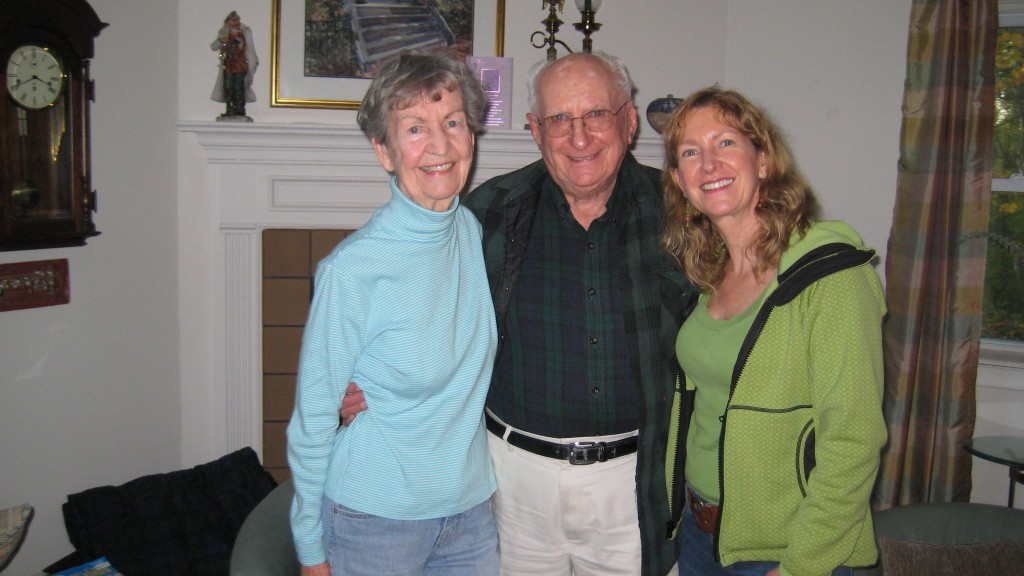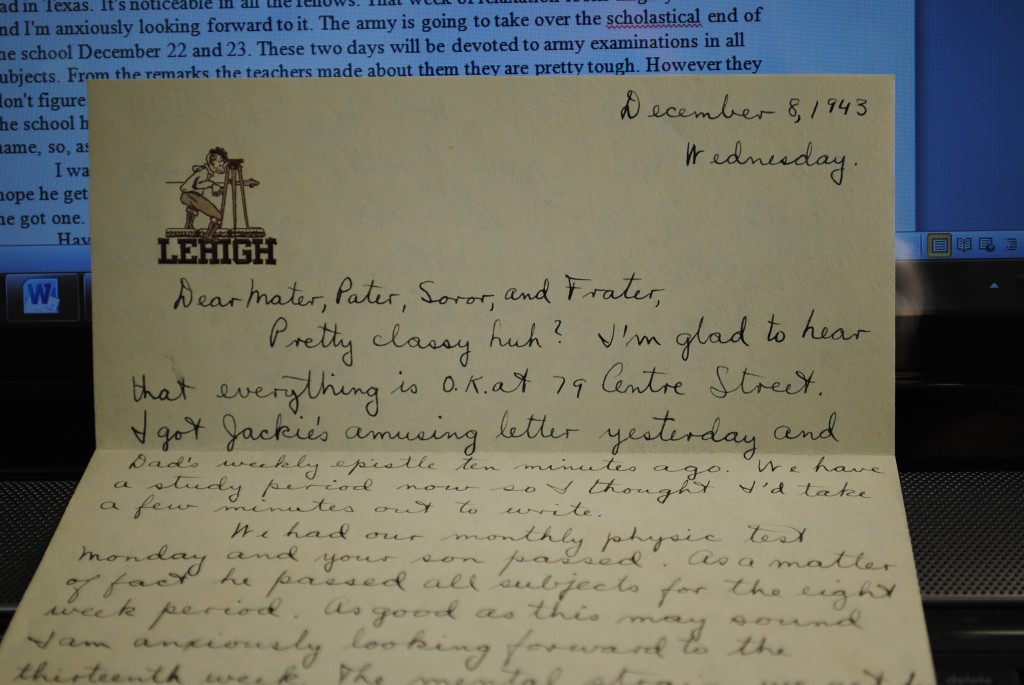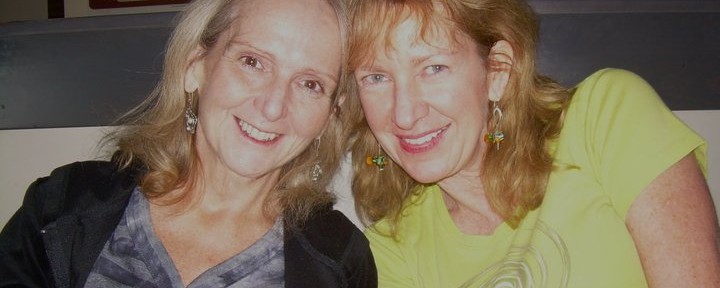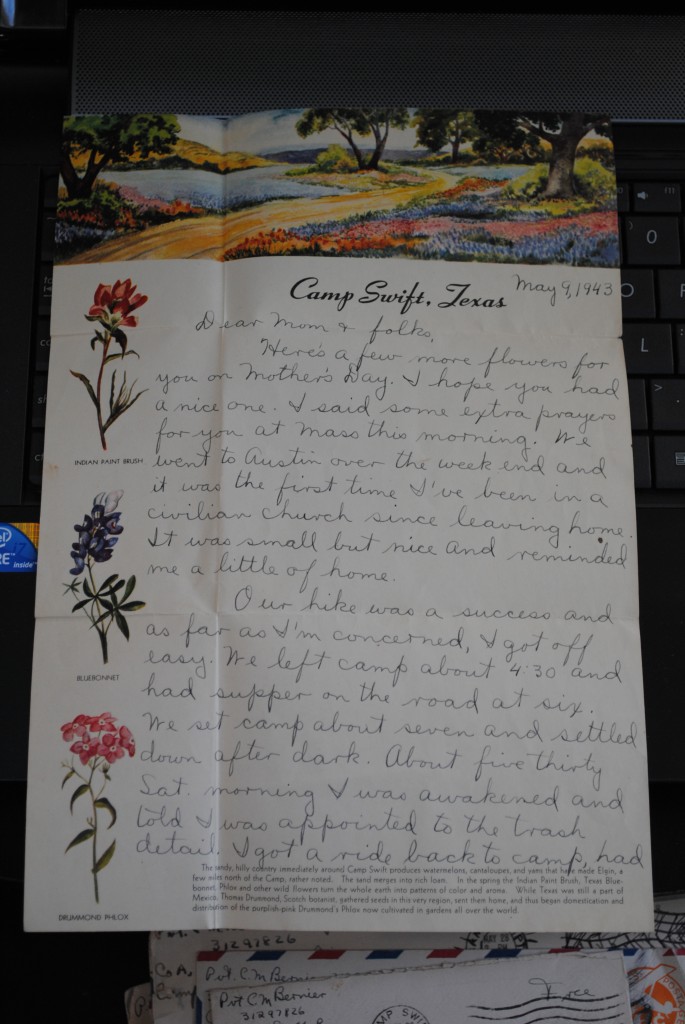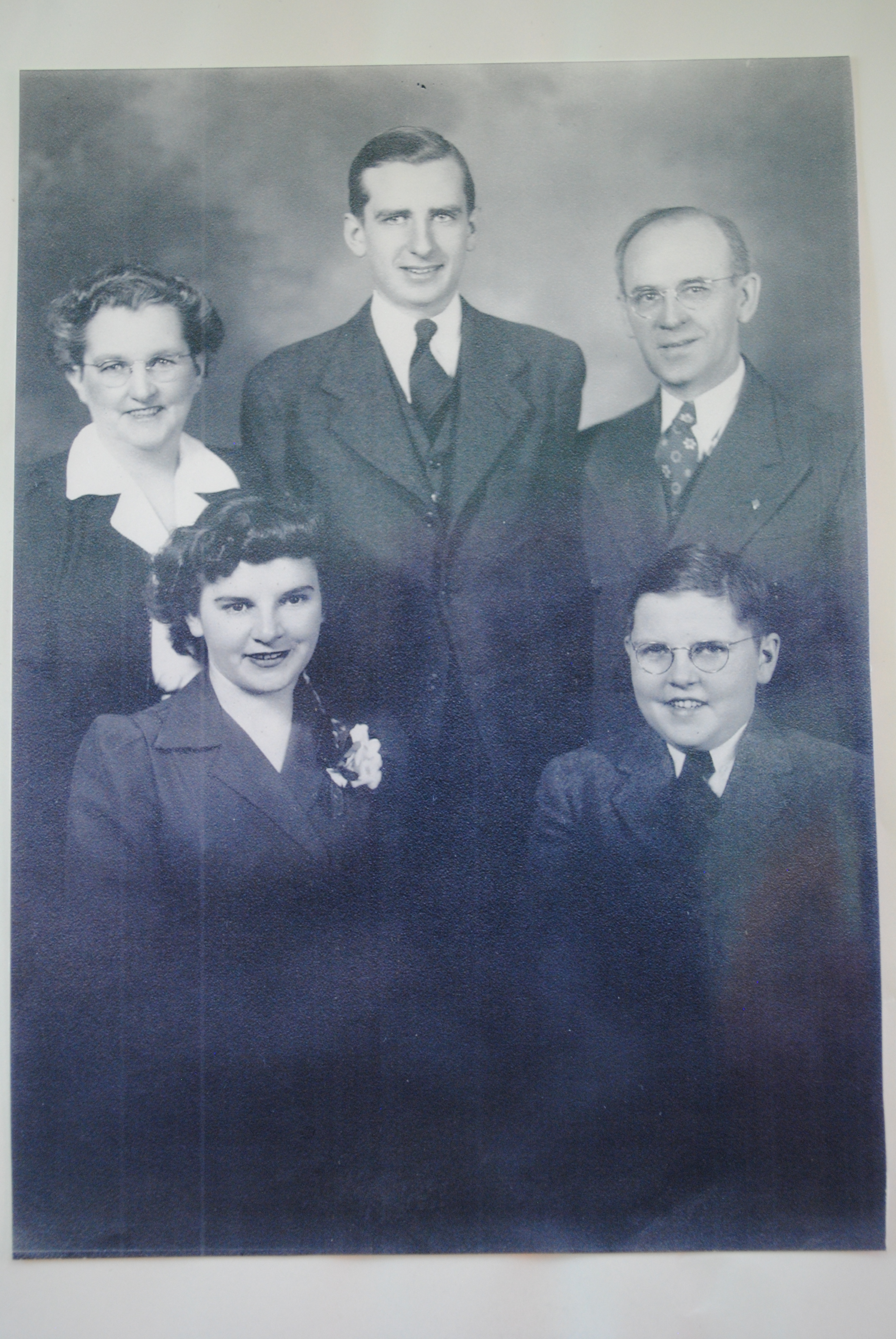It seems that nothing would stop my father from writing home, not being in a tent, not “forgetting” to bring his pen! Letters sent home the last half of May, 1943 focus on the drudgery of camp life (and the seemingly endless guard, cleaning, kitchen duties!) and the smaller things, like not being able to buy treats.
“If we had any more inspections I would have dropped from nervous exhaustion. We have to shake our blankets out daily and five minutes later they are full of dust. They should call this Camp Dust instead of Camp Swift.”
Despite the drudgery, he always seems to keep his dry sense of humor.
“Monday I was hit with my old faithful “K.P.” I would rather walk twenty miles than do K.P. It’s really rough.”
K.P., or “Kitchen Patrol/Police,” is the equivalent of being a busser/dish-washer/floor scrubber at a fast-food restaurant…with no chance of earning tips!
“I got your letter yesterday with the dollar in it. Thanks a lot. Paydays are few and far between in the army . . . . The candy & cookie situation here is quite desperate, as the P.X.s have very little stock and what they have is bought up by fellows leaving for overseas. Any donations will be most gratefully received.”
The thought of a “desperate” cookie situation initially makes me chuckle, but the reality of not having them available because of the war situation makes me feel guilty about what I have in my cupboards right now. “Cupboards”? Does anyone use that term anymore?
When the blankets have been shaken and the kitchen cleaned, there is still work to do:
“Talking about windows, every Friday nite we have to clean all the windows in the barracks for inspection. Besides we have to get down on our hands and knees and scrub the floor. So you see I’ll be quite useful when I get home. If and when I do get home I want you to make me wait outside the kitchen about fifteen minutes before meals, as I might get too lonesome for the army. We have lines for everything, even when we go to town. When I get home I might get too soft if I get right into a movie or can eat immediately.”
And frequently there’s the talk of going home . . .

